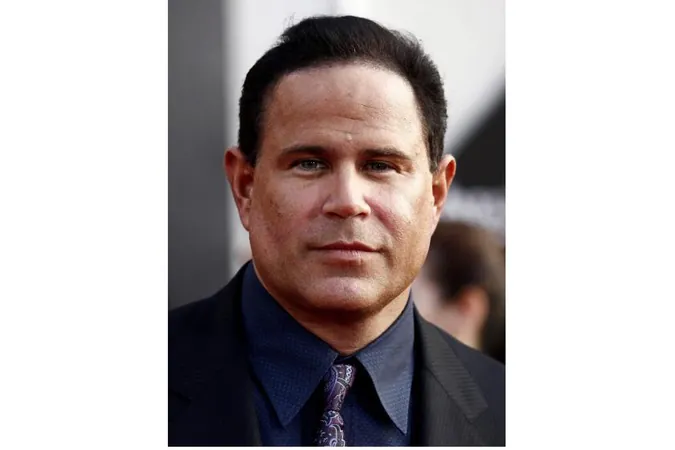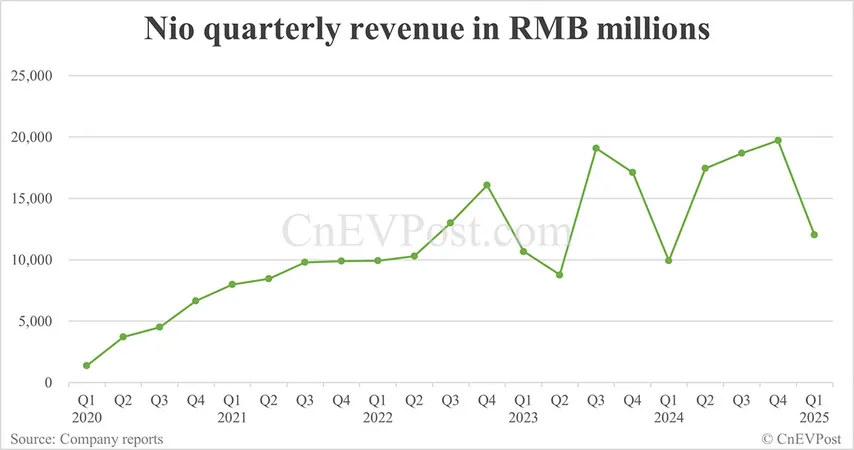
From Hollywood Dreams to Behind Bars: Part-Time Actor Sentenced for COVID-19 Cure Scam
2025-01-06
Author: Yan
Introduction
In a shocking turn of events, Keith Lawrence Middlebrook, a part-time actor with minor roles to his name—including a stint in "Iron Man 2"—has been sentenced to over eight years in federal prison for orchestrating a fraudulent scheme that promised a cure for COVID-19. The case not only underscores the lengths to which some will go amid a global health crisis, but also exposes the dangers of misinformation and greed during such unprecedented times.
Background of the Case
Middlebrook, 57, was convicted back in May on 11 counts of wire fraud. Despite claims of innocence, he faced the music in a federal court in Los Angeles on Monday, where he vehemently insisted that he was “completely innocent” and indicated plans to appeal the verdict.
Judicial Concerns
During the sentencing hearing, U.S. District Judge Dale S. Fischer expressed deep concern about Middlebrook's apparent refusal to acknowledge his wrongdoing. She stated, “It is clear that Mr. Middlebrook still denies that he has committed any crime, which raises significant worries that he may continue to perpetrate similar offenses in the future.”
False Claims and Testimonies
A contentious aspect of the trial revolved around Middlebrook’s dubious assertions regarding a connection with NBA legend Magic Johnson. Prosecutors alleged that Middlebrook falsely claimed Johnson was an officer in his companies. In a striking defense against these allegations, Johnson—who recently received the Presidential Medal of Freedom—testified under oath that he had never supported or been associated with Middlebrook’s enterprises. The court found Middlebrook's claims about having met Johnson multiple times to discuss the fraudulent treatment particularly unconvincing.
Reactions from the Court
Judge Fischer echoed prosecutors' sentiments, stating it was "inconceivable" that Johnson could forget such an encounter if it had occurred. After the hearing, Middlebrook's attorney, Andrew Stein, continued to dispute Johnson's honesty, asserting that the former athlete lied under oath to distance himself from the case.
The Timing of the Scam
The misleading claims made by Middlebrook came at a particularly vulnerable time during the early days of the COVID-19 pandemic when many were grasping at any possible solution. The FBI caught wind of Middlebrook’s scheme in March 2020, leading to his arrest after he delivered pills, purported to be a preventive treatment, to an undercover agent acting as an investor.
Future Considerations
Additionally, Stein suggested that a Stanford doctor had testified about the efficacy of Middlebrook’s concoction, stating, “I do not know how the jury convicted him.” He hinted at a potential future exploration of these claims in hopes of vindicating Middlebrook during the appeal process.
Consequences and Reflection
Middlebrook wasn’t only sentenced to prison; he also received a fine of $25,000 and will face three years of supervised release following his incarceration.
Conclusion
This case serves as a stern reminder of the pitfalls of exploiting public fear and mistrust during a health crisis. As scams proliferate, the need for vigilant media literacy and accountability within the healthcare and entertainment industries has never been more critical. Stay alert, stay informed—together we can combat fraud and misinformation in these trying times.



 Brasil (PT)
Brasil (PT)
 Canada (EN)
Canada (EN)
 Chile (ES)
Chile (ES)
 Česko (CS)
Česko (CS)
 대한민국 (KO)
대한민국 (KO)
 España (ES)
España (ES)
 France (FR)
France (FR)
 Hong Kong (EN)
Hong Kong (EN)
 Italia (IT)
Italia (IT)
 日本 (JA)
日本 (JA)
 Magyarország (HU)
Magyarország (HU)
 Norge (NO)
Norge (NO)
 Polska (PL)
Polska (PL)
 Schweiz (DE)
Schweiz (DE)
 Singapore (EN)
Singapore (EN)
 Sverige (SV)
Sverige (SV)
 Suomi (FI)
Suomi (FI)
 Türkiye (TR)
Türkiye (TR)
 الإمارات العربية المتحدة (AR)
الإمارات العربية المتحدة (AR)